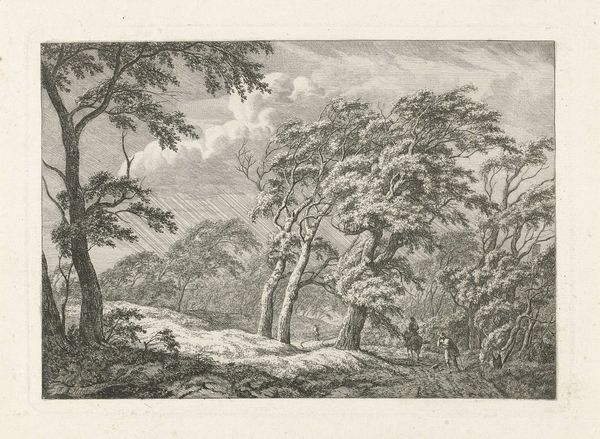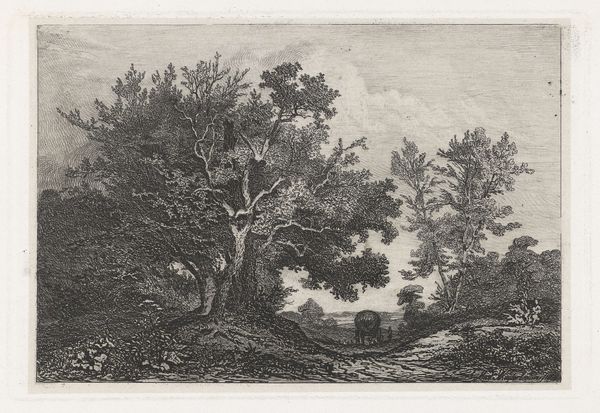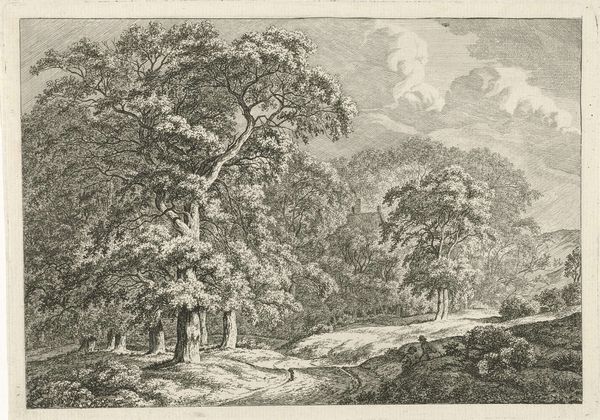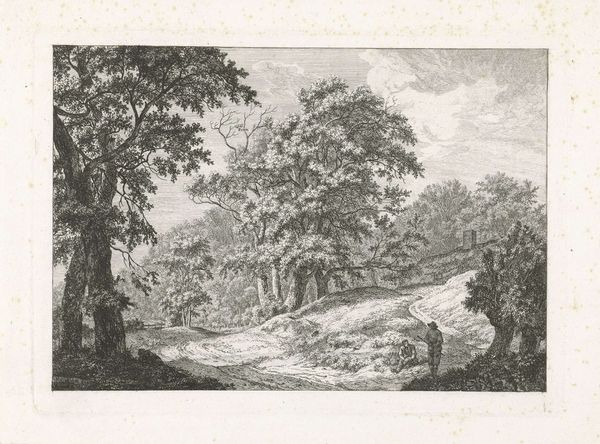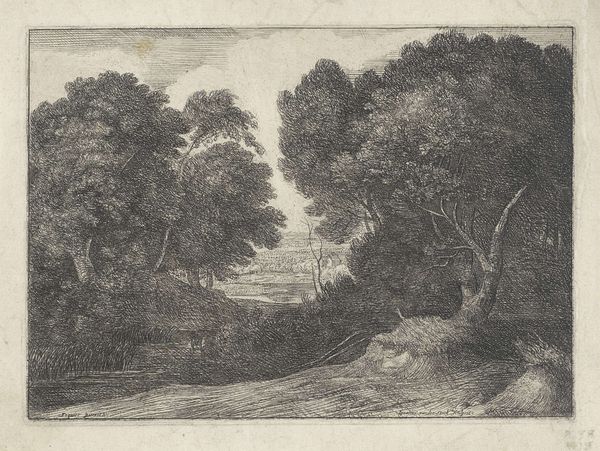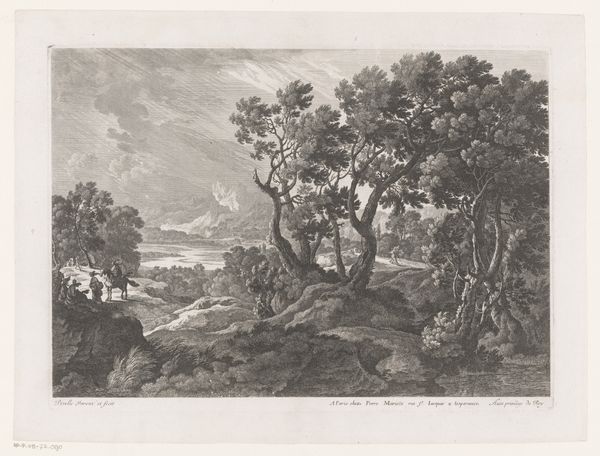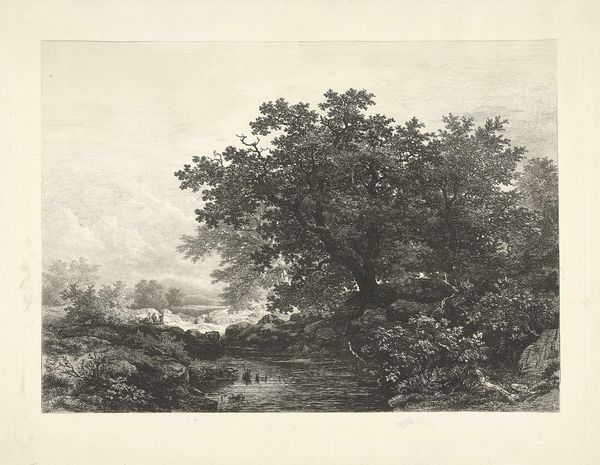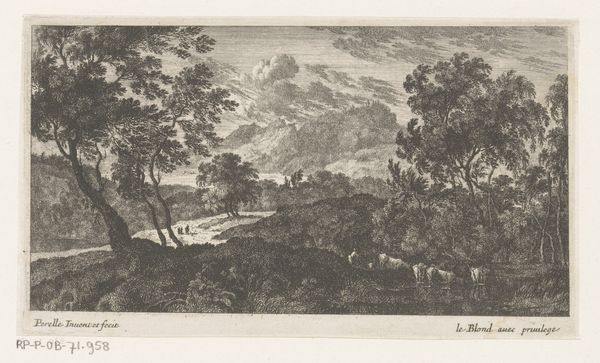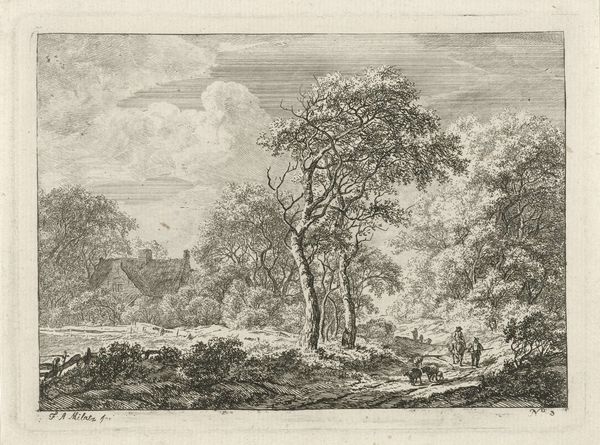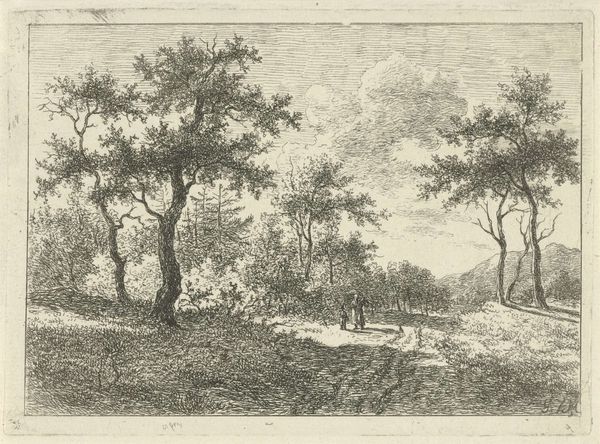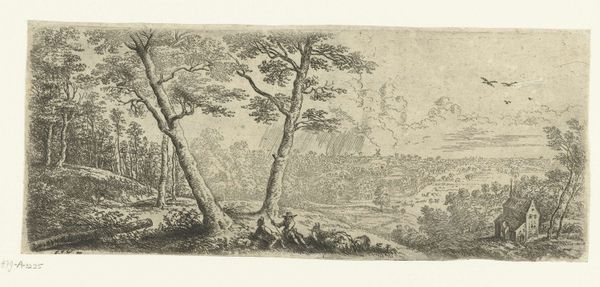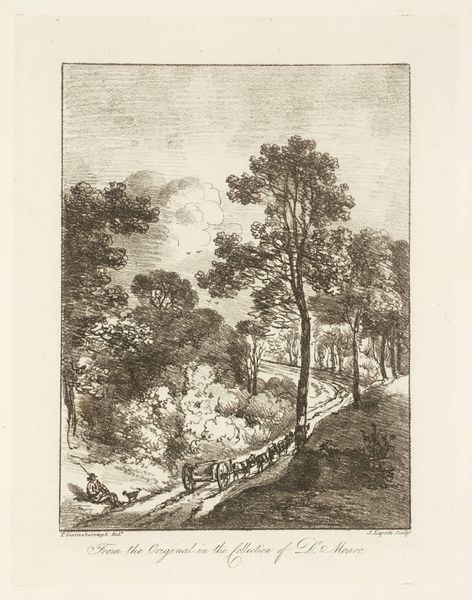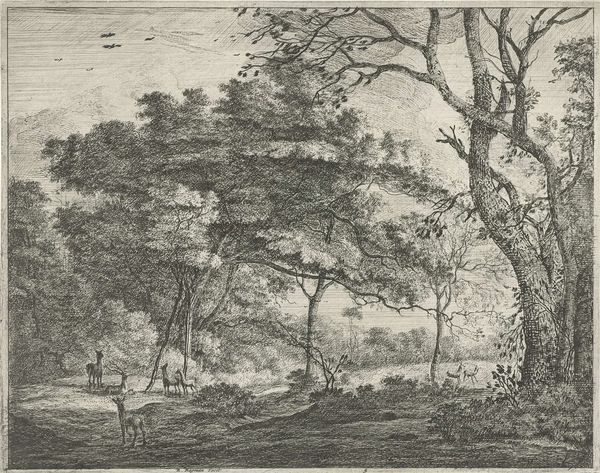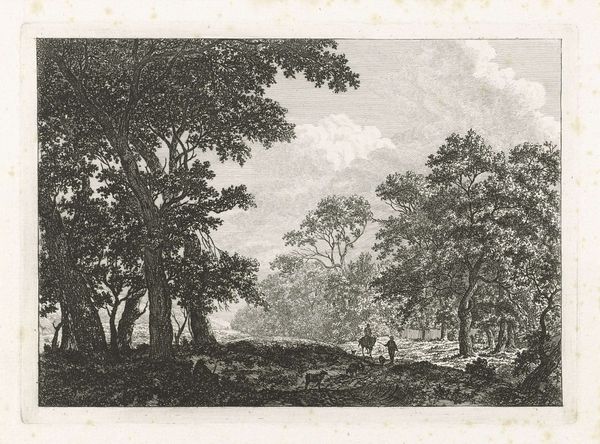
drawing, print, etching, engraving
#
drawing
#
neoclacissism
# print
#
etching
#
old engraving style
#
landscape
#
engraving
Dimensions: height 177 mm, width 247 mm
Copyright: Rijks Museum: Open Domain
This landscape etching of a shepherd and sheep was rendered by Franciscus Andreas Milatz in the late 18th century. Dominating the scene, the figure of the shepherd stands as a potent symbol of pastoral care, deeply embedded in our collective consciousness. Consider how this motif echoes through time, from the biblical figure of the Good Shepherd, a protector of his flock, to the Arcadian visions of classical antiquity. The shepherd embodies a longing for simpler times, a connection to nature, and a sense of spiritual guidance. Yet, the symbol is never static. Its meaning shifts as it reappears in varied contexts, from religious iconography to secular art. The enduring appeal of the shepherd lies in its emotional resonance. It touches a primal part of our psyche, evoking feelings of safety, belonging, and a yearning for a lost paradise. This emotional and psychological weight continues to engage viewers across centuries. Thus, the shepherd wanders through our cultural memory, a symbol constantly resurrected and reinterpreted, proving the non-linear and cyclical progression of images across time.
Comments
No comments
Be the first to comment and join the conversation on the ultimate creative platform.
